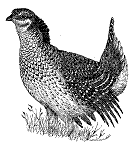Papers in the Biological Sciences

Papers in Ornithology
Document Type
Article
Date of this Version
3-2011
Citation
Current Biology 21:6 (March 22, 2011), pp. 515–519; doi: 10.1016/j.cub.2011.02.023
Abstract
The reliability of information that animals use to make decisions has fitness consequences. Accordingly, selection should favor the evolution of strategies that enhance the reliability of information used in learning and decision making. For example, hosts of avian brood parasites should be selected to increase the reliability of the information they use to learn to recognize their own eggs and chicks [1–3]. The American coot (Fulica americana), a conspecific brood parasite, uses cues learned from the first-hatched chicks of each brood to recognize and reject parasitic chicks [3]. However, if parasitic eggs are among the first to hatch, recognition cues are confounded and parents then fail to distinguish parasitic chicks from their own chicks. Therefore, hosts could ensure correct chick recognition by delaying parasitic eggs from hatching until after the first host eggs. Here we demonstrate that discriminatory incubation, whereby coots specifically delay the hatching of parasitic eggs, improves the reliability of parasitic chick recognition. In effect, coots gain fitness benefits by enhancing the reliability of information they later use for learning. Our study shows that a positive interaction between two host adaptations in coots—egg recognition and chick recognition—increases the overall effectiveness of host defense.
(Includes supplementary material.)


Comments
Copyright © 2011 Elsevier Ltd. Used by permission.